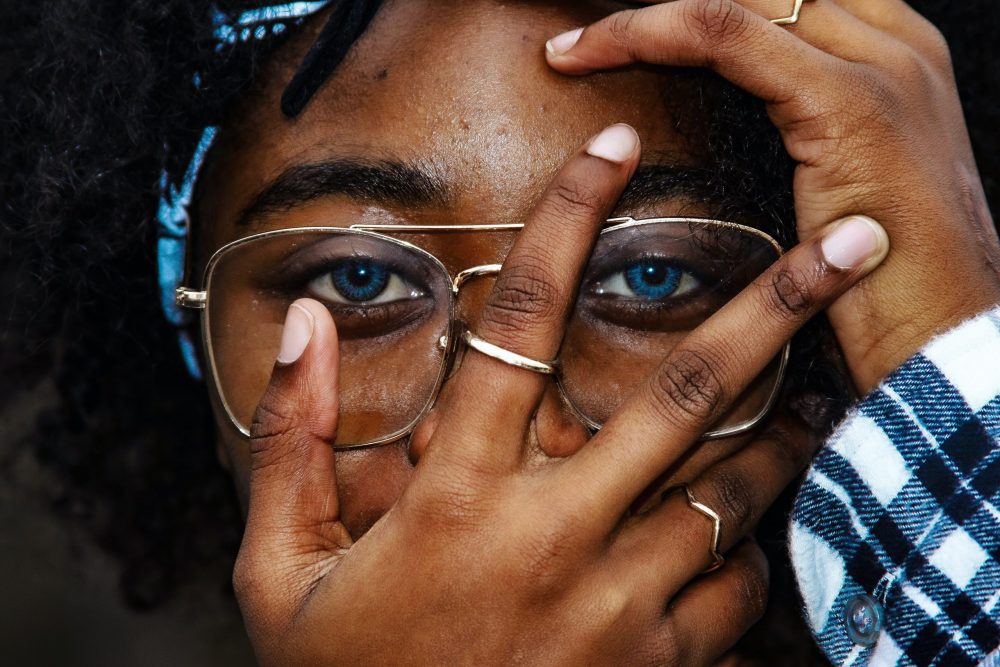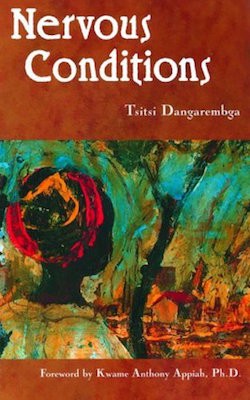Novel Gazing
How Audre Lorde Helped Me Reclaim My Voice
My white classmates were walking all over me, until the course readings gave me the tools to talk back

Novel Gazing is Electric Literature’s personal essay series about the way reading shapes our lives. This time, we asked: What book was your feminist awakening?
I was 25 years old the first time I thought about my voice. It was during my second year as a graduate student at a small liberal arts college outside of Philadelphia. Seated in a semicircle in a fluorescent lit classroom, I quietly looked over the syllabus for EN 444: Women, Writing, and Rhetoric, or “feminist literary theory” as my white self-described third wave professor gleefully called it. Smoothing her skirt, she smiled before assuring me and my classmates that this course and this classroom would be a safe space where we could openly dismantle misogyny and subvert patriarchal pedagogy. Before she could review the required reading list, a woman seated to my left interrupted, asking for the definition for “patriarchy” and whether or not there we would be required to memorize any key terms throughout the semester. Another student, the only man in the room, asked if the course was only for women (he later dropped the class).
While my professor replied to their questions, I paged through the syllabus. Familiar names of women whose works I’d read in undergrad appeared in Times New Roman: Adrienne Rich, Alice Walker, bell hooks, Simone De Beauvoir, Toni Morrison, and Gloria Steinem, a.k.a. the matriarchs of the feminist canon. There were also a few names I didn’t recognize. One of those names was Audre Lorde.
Each class, we focused on two or three women writers. As a group, we’d discuss the structure of their pieces and way they used language to captivate their audience. While my classmates cooed over Virginia Woolfe’s wit in “Professions for Women” and Dorothy Day’s spirited conviction in a speech from the late 1930s, I drew zig-zags in the margins of my notebook. A few times, I tried to jump into the conversation, suggesting that many women writers possess accessibility that others lack. One classmate mentioned Woolfe’s famed “A Room of One’s Own” as an example, citing how Woolfe’s economic stability allowed for her to dedicate herself solely to her work. As names of other women writers were mentioned, I decided to chime in, suggesting that Phillis Wheatley, although a slave, was able to occupy various intellectual and physical spaces in ways that other Black women of her generation weren’t able to. Seconds later, a white classmate (dressed in a burnt orange sari and Birkenstocks) cut me off. Her face was bright red. “How could you say that,” she shouted. “She was a slave being held against her will. How is that a privilege? Do you even understand the implications of the Transatlantic Slave Trade?” Before I could answer, my professor suggested that we take a five minute break.
From that point forward, I found myself caught between frustration and fury, hesitant to share my thoughts. As we made our way down the proverbial timeline, I remained silent. Although we were assigned pieces by women of color, class discussion rarely centered around those voices. Instead, we spent the majority of our time examining works written by white (and primarily heteronormative) women. Or at least we did, until we got to “The Transformation of Silence into Language and Action.”
To say that Audre Lorde’s words changed my life would be cliche, but it would also be the truth. At that point in the course, I dreaded going to class. Despite my high-spirited and well-intentioned professor and the unknowingly microaggresive white women in my class, as one of two POC students in the class, I felt like I had few allies within the “safe space” my professor had promised at the beginning of the semester. I can’t remember why we focused on Audre that day instead of someone else. Perhaps it was because her essay was shorter than the piece assigned by Adrienne Rich, or maybe my professor had finally realized how racially homogenous the focus of our class discussions had been. Regardless of the reason, that day stirred something inside me. Audre’s words dissolved a wall I didn’t realize I’d been hiding behind.
Audre’s words dissolved a wall I didn’t realize I’d been hiding behind.
In the opening to her iconic essay, Audre writes, “I have come to believe over and over again that what is most important to me must be spoken, made verbal, and shared, even at the risk of having it bruised or misunderstood.” The first time I read that sentence I was sitting at home on the floor of my bedroom and yes, the world seemed to drift away. I felt as if she saw me, that she knew the story of how I lost the confidence to share my experiences and truths with others. Somehow she saw the countless ways that the world turned an opinionated little Black girl into a reluctantly silent woman. I reread the sentence again and again. Each word reminded me that what was most important to me must be spoken, even at the threat of being dismissed, refuted, or misinterpreted. Within the span of a sentence, she helped me remember that I not only had a voice, but that my voice was necessary. Silence was no longer an option.
The day we discussed “The Transformation of Silence into Language and Action” was the first time I willingly participated in class. Every time that a classmate failed to contextualize the intersectionality of Audre’s identity as a Black lesbian poet, I reminded them to return to the text. When a middle-aged white woman tried to relate Audre’s experiences to her own, I cut her off without apology, mentioning that due to her privilege as a white woman, her experience, although valid, is not “just like” the experiences of women of color. When my professor asked if anyone was comfortable with sharing how our silences had failed to protect us, I volunteered. I briefly shared a childhood memory of being spat on and called a n*gger by an elementary school peer. I told them how I lied to my mom at the bus stop when she asked me why I was crying and how I denied the whole incident despite it being recounted to my parents by my bus driver. As I spoke, I could feel my classmates’ eyes on me, a few exhaled empathetic sighs while the others slightly shook their heads in disbelief. My professor thanked me for sharing before taking a deep breath and quickly adding, “I’m so sorry that happened to you.”
In that moment, I felt freer than I ever had, but it wasn’t because of them. Sure, their empathy — however performative or authentic it might have been — was appreciated, and the ability to insert myself into a dialogue that I’d merely watched from the sidelines for so long felt great. That freeness, the looseness in my shoulders, and the less heavy weight on my chest, that was because of Audre. She shook me awake. She taught me that I can dispel my own fears with the sound of my voice. Through her words, I reclaimed my life.
She shook me awake. She taught me that I can dispel my own fears with the sound of my voice. Through her words, I reclaimed my life.
Five years later, I sit on a bus headed back to Brooklyn from the Women’s March in Washington, D.C.. My arms are tired from carrying a laminated protest sign with Audre’s words written on it. The landscape blurs as we cross state lines and I lean my head against the cool glass of one of the bus’ many windows. I’m on the brink of 30, more or less out of a job, and Donald J. Trump, or 45 as my friends and I have chosen to call him, is horrifically the President of my nation. As I sit, my fears about the future swarm inside my mind. I pull my phone out of my pocket and open the only PDF saved on it. I dim the light on my screen, and begin to read: Of course I am afraid, because the transformation of silence into language and action is an act of self-revelation, and that always seems fraught with danger.
And again, Audre sees me. Across space and time, she reminds me that I’m not alone — that none of us really are. And just like that, the weight of my silence and my fears is lifted.








